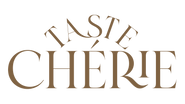Hey sick mama, I see you.
You’re exhausted, congested, coughing, maybe running a fever, and yet—your baby still needs you. And you want to be present, providing them the comfort and nourishment only you can give. As a doctor and a fellow mom who has been there, I want to wrap you in a big, warm hug and reassure you: you can absolutely breastfeed while you’re sick—and in most cases, it’s actually the best thing you can do for your little one.
Can Breastmilk Infect my Baby?
While some viruses like HIV and hepatitis can be passed more readily from mother to infant, the most common household infections cannot be spread via breastmilk. The common cold, RSV, influenza (Flu), Covid, and stomach bugs like norovirus, have not been shown to be active or transmissible in breastmilk. In fact, the CDC recommends continuation of breastfeeding or pumping during influenza, covid and other such infections because of the extra protection it confers to the baby.
While breastmilk is not contagious itself, other bodily fluids like saliva and nasal discharge can carry germs that have the potential to get baby sick. It is important to practice good hand washing techniques to prevent from spreading these germs either to baby or to your pump supplies. Coughing and sneezing can also release infectious droplets into the air, so if you have such symptoms, consider wearing a mask while nursing or bottle feeding given how close you are to baby.
Your Milk is Protective
One of the most incredible properties about human milk is the protection that it offers against multiple types of infection. There is strong evidence that babies consuming breastmilk have lower incidence and lower severity of diarrheal illnesses, respiratory tract infections, middle ear infections and sepsis.
So how does breastmilk do this? You have likely heard that breastmilk is rich in antibodies, the cells that help to combat infection. When you are sick, the antibodies your body makes to fight off the infection enter your breastmilk and get passed on to the baby. Specifically, breastmilk contains Secretory IgA antibodies, which can trap infectious pathogens in the lining of baby’s nose and gut to help the body clear them. Secretory IgA can also directly neutralize some bacteria and viruses. In addition, breastmilk contains other components that contribute to defense including lactoferrin, a protein that can kill bacteria and viruses, and oligosaccharides that help protect the gut, decrease inflammation, and prevent the absorption of infectious bugs. Ultimately, human milk is chock full of protective elements!
Double Check Safety of Medications
This is a biggie—I know how hard it is to be sick while caring for a baby, and you deserve relief. The good news? Some basic over-the-counter medications, like acetaminophen (Tylenol) and ibuprofen (Advil/Motrin), are safe while breastfeeding. Nasal saline and fluticasone sprays are okay for nasal congestion, guaifenesin is a safe to treat coughs and throat lozenges are fine for sore throats. Unfortunately, many other cold and flu meds can be harmful or else decrease your milk supply. For example, one should avoid extended use of decongestants like Pseudoephedrine, often found in multi-symptom cold medications, as it can cause significant decreases in milk supply. Benzonatate, a common cough medication, is detectable in breastmilk and can be harmful to baby in even small amounts. And while there are several antibiotics one can use during lactation, others may cause side effects in the baby. All of this to underscore that it is important to check either with a doctor, lactation consultant or a reputable website like LactMed, which is a database for medication safety during lactation.
Maintaining Supply and Caring for Yourself
Many breastfeeding or pumping parents will notice a decrease in supply during an illness. The cause of this is often due to insufficient food or water intake. If lactation already requires ample hydration and an average of 340-440 more calories of food daily than usual, then you can imagine how difficult it can be to maintain this when you lack appetite, or are dehydrated from fever, vomiting or diarrhea. It is imperative to try and maintain some sort of nutrition. If appetite is low, try to focus on smaller amounts of nutrient-rich and calorie-dense foods. If you absolutely cannot stomach solids, then focus on hydration with things like bone broth, tea, low sugar electrolyte drinks, pedialyte and coconut water.
Most importantly, as much as you may be tempted, try not to skip feeds or pumping sessions. The primary way to maintain supply whether healthy or sick is with frequent emptying. Do what you can to persist. This may mean trying to feed while side-lying, or pumping while someone else feeds the baby.
If you do notice a dip in supply after a bout of illness, try adding 10 additional minutes of pumping after feeds, or if you are already pumping, take a 5-10 minute break after your normal pump session, then pump for an additional 10 minutes. Be sure as well to pick up the calorie and fluid intake once you feel up to it. You can also try using galactagogues for an extra boost.
You’ve Got This, Mama
I recall seeing the old cough medicine commercial when a mom tries to tell her family that she’s calling out sick. They stare at her like she’s crazy while a voice states: “moms don’t get sick days.” I never knew its painful truth until I became a mother myself and realized I had no one to fully step in and take over.
I know firsthand how hard it is to be sick while still showing up for your baby. But you are showing up. Even in your exhaustion, you are giving your little one love, comfort, and protection. So rest when you can, seek out and accept help, and do your best. Most importantly, give yourself grace.
Sending you warmth, rest, and a virtual cup of tea. You’re not alone and you’re doing an amazing job. 💛

References:
Aljazaf K, Hale TW, Ilett KF, Hartmann PE, Mitoulas LR, Kristensen JH, Hackett LP. Pseudoephedrine: effects on milk production in women and estimation of infant exposure via breastmilk. Br J Clin Pharmacol. 2003 Jul;56(1):18-24. doi: 10.1046/j.1365-2125.2003.01822.x. PMID: 12848771; PMCID: PMC1884328.
CDC. “COVID-19 and Breastfeeding.” Breastfeeding Special Circumstances, 10 May 2024, www.cdc.gov/breastfeeding-special-circumstances/hcp/illnesses-conditions/covid-19.html.
CDC. “Influenza (Flu) and Breastfeeding.” Breastfeeding Special Circumstances, 15 May 2024, www.cdc.gov/breastfeeding-special-circumstances/hcp/illnesses-conditions/flu.html?CDC_AAref_Val=www.cdc.gov/breastfeeding/breastfeeding-special-circumstances/maternal-or-infant-illnesses/influenza.html. Accessed 30 Jan. 2025.
CDC. “Maternal Diet and Breastfeeding.” Breastfeeding Special Circumstances, 12 Apr. 2024, www.cdc.gov/breastfeeding-special-circumstances/hcp/diet-micronutrients/maternal-diet.html.
Hanson LA. Breastfeeding provides passive and likely long-lasting active immunity. Ann Allergy Asthma Immunol. 1998 Dec;81(6):523-33; quiz 533-4, 537. doi: 10.1016/S1081-1206(10)62704-4. Erratum in: Ann Allergy Asthma Immunol 1999 May;82(5):478. PMID: 9892025.
Kell DB, Heyden EL, Pretorius E. The Biology of Lactoferrin, an Iron-Binding Protein That Can Help Defend Against Viruses and Bacteria. Front Immunol. 2020 May 28;11:1221. doi: 10.3389/fimmu.2020.01221. PMID: 32574271; PMCID: PMC7271924.
Mantis, N J, et al. “Secretory IgA’s Complex Roles in Immunity and Mucosal Homeostasis in the Gut.” Mucosal Immunology, vol. 4, no. 6, 5 Oct. 2011, pp. 603–611, www.ncbi.nlm.nih.gov/pmc/articles/PMC3774538/, https://doi.org/10.1038/mi.2011.41.
Pietrzak B, Tomela K, Olejnik-Schmidt A, Mackiewicz A, Schmidt M. Secretory IgA in Intestinal Mucosal Secretions as an Adaptive Barrier against Microbial Cells. Int J Mol Sci. 2020 Dec 4;21(23):9254. doi: 10.3390/ijms21239254. PMID: 33291586; PMCID: PMC7731431.
Plaza-Díaz J, Fontana L, Gil A. Human Milk Oligosaccharides and Immune System Development. Nutrients. 2018 Aug 8;10(8):1038. doi: 10.3390/nu10081038. PMID: 30096792; PMCID: PMC6116142.



